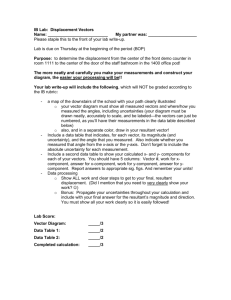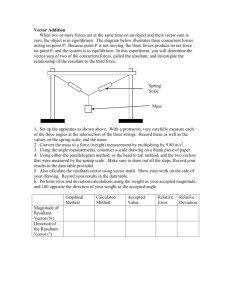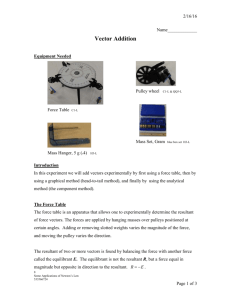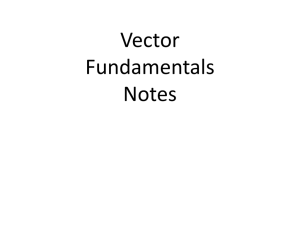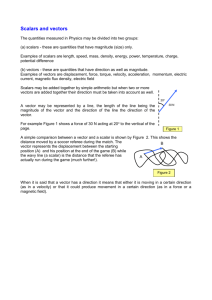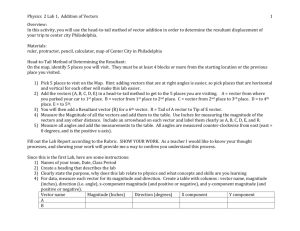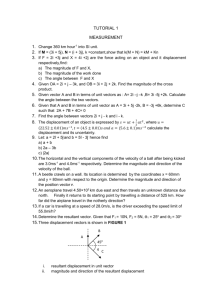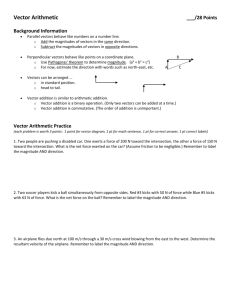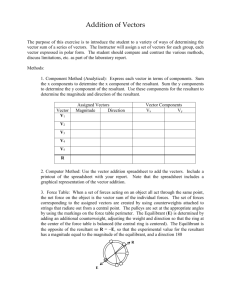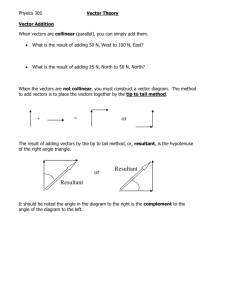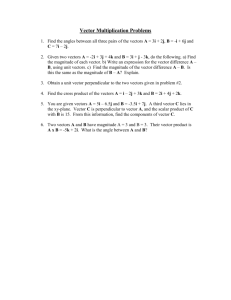Physics Lab 1, Addition of Vectors Overview: In this activity, you will
advertisement
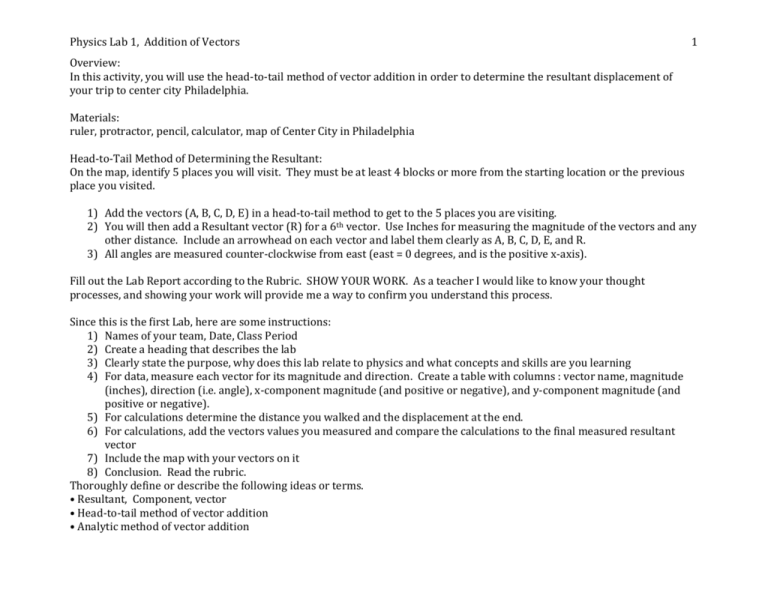
Physics Lab 1, Addition of Vectors 1 Overview: In this activity, you will use the head-to-tail method of vector addition in order to determine the resultant displacement of your trip to center city Philadelphia. Materials: ruler, protractor, pencil, calculator, map of Center City in Philadelphia Head-to-Tail Method of Determining the Resultant: On the map, identify 5 places you will visit. They must be at least 4 blocks or more from the starting location or the previous place you visited. 1) Add the vectors (A, B, C, D, E) in a head-to-tail method to get to the 5 places you are visiting. 2) You will then add a Resultant vector (R) for a 6th vector. Use Inches for measuring the magnitude of the vectors and any other distance. Include an arrowhead on each vector and label them clearly as A, B, C, D, E, and R. 3) All angles are measured counter-clockwise from east (east = 0 degrees, and is the positive x-axis). Fill out the Lab Report according to the Rubric. SHOW YOUR WORK. As a teacher I would like to know your thought processes, and showing your work will provide me a way to confirm you understand this process. Since this is the first Lab, here are some instructions: 1) Names of your team, Date, Class Period 2) Create a heading that describes the lab 3) Clearly state the purpose, why does this lab relate to physics and what concepts and skills are you learning 4) For data, measure each vector for its magnitude and direction. Create a table with columns : vector name, magnitude (inches), direction (i.e. angle), x-component magnitude (and positive or negative), and y-component magnitude (and positive or negative). 5) For calculations determine the distance you walked and the displacement at the end. 6) For calculations, add the vectors values you measured and compare the calculations to the final measured resultant vector 7) Include the map with your vectors on it 8) Conclusion. Read the rubric. Thoroughly define or describe the following ideas or terms. • Resultant, Component, vector • Head-to-tail method of vector addition • Analytic method of vector addition Physics Lab 1, Addition of Vectors 2
